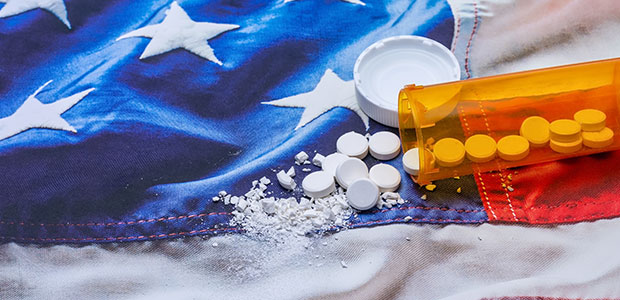
NSC Asks Presidential Candidates to Fight the Opioid Epidemic
The National Safety Council has asked presidential candidates to utilize the National Plan to Address Opioid Misuse—a recent plan to combat addiction.
On February 25, 2020, the National Safety Council released a comprehensive, inclusive strategy to address the national opioid epidemic. In partnership with more than 50 organizations and companies worldwide, the NSC’s National Plan to Address Opioid Misuse outlines actions that must be taken to effectively confront each stage of the addiction life cycle—from prevention to recovery.
The opioid epidemic affects thousands of Americans every single year. Opioid addiction kills 130 people every day and costs the U.S. economy $78 billion a year. Opioid prescriptions have been on the rise for the last decade, and more and more citizens are gaining dangerous access to addictive levels of opioids.
To expose the issue further, the NSC notes that for the first time in U.S. history, a person is more likely to die from an accidental opioid overdose than a car crash. Drug overdose—primarily from opioids—is the leading cause of preventable death for American adults.
This is why the NSC asks all of the current presidential candidates—regardless of party—to adopt the Plan in full or use to close gaps in existing plans and policies. Why? The opioid epidemic, at its core, is not political: it is a humanitarian and public health concern across the country.
The NSC’s analysis of the 2020 Election’s presidential candidates shows that all candidates do include some critical directives to address the issue. The directives include increasing access to medication-assisted treatments and increasing prescriber education.
However, none of the candidates’ plans address other major points of the epidemic such as: employers’ roles and responsibilities, plans to expand data collection to help understand the scope and complexity of the overdose crisis more clearly. Only two plans include a description of prevention efforts the candidate would implement if he or she is elected.
However, candidates have not much talked about yet another factor in the opioid fight. The candidates have overlooked the role of enforcement and first responders in the crisis, as well as the expanded use of specialty courts that prioritize treatment over incarceration.
“Opioid overdoses are a public health crisis, and all presidential candidates should be giving it the attention it deserves,” said Lorraine M. Martin, president and CEO of the National Safety Council. “Unfortunately, to date, opioid misuse has not been a significant element of the election cycle dialogue, and it needs to be. NSC and our partners urge everyone vying for the nation’s highest office to examine their plans or adopt the National Plan in full, so we can save lives and end these preventable deaths.”
Employers have a major part in combating the national opioid crisis. According to NSC surveys, seventy-five percent of employers have been directly impacted by employee opioid misuse. However, only 17 percent feel extremely prepared to deal with the situation. Employers have the power and ability to drive change, recognize signs and symptoms of misuse and cultivate a workplace culture of transparency.
The NSC argues that presidential candidates have the power to encourage employers to act on the epidemic and influence change.
Read the Occupational Health & Safety Magazine’s articles on the NIOSH Drug Toolkit for First Responders, the NSC New Opioid Toolkit for Worker Safety, and Construction Workers’ Risk of Opioid and Cocaine Abuse.
The National Plan to Address Opioid Misuse gives recommendations for employers on creating return-to-work policies and following treatment. It recommends employers accommodate employees who are prescribed opioids and stock naloxone in workplace first aid kits, among other actions.
Other critical recommendations missing from several candidates’ platforms include:
- Requiring prescribers to use Prescription Drug Monitoring Programs and receive ongoing education about opioid use for both acute and chronic pain
- Increasing insurance coverage of non-opioid pain management methods and coverage of medications for addiction treatment
- For those in recovery, increasing employment opportunities and expanding access to traditional housing, job training and social services
- Initiating national action to reduce the stigma experienced by people with a substance use disorder
- Directing pharmaceutical company settlement funds toward hospitals and other entities including but not limited to health and safety organization, community-based organizations and non-profits, with the ability to address patient needs, the needs of other persons with an opioid use disorder and the needs of others impacted
The opioid epidemic across the country has affected every American citizen, either directly or indirectly. There are a number of factors that contribute to the problem—ranging from roles of pharmaceutical companies to health care plans to workplace environments and employer responsibility and training.
The NSC’s National Plan to Address Opioid Misuse aims to push presidential candidates to address the issue in their own workplaces and with effective strategies. The NSC recognizes that this is not about politics—it’s about saving lives.